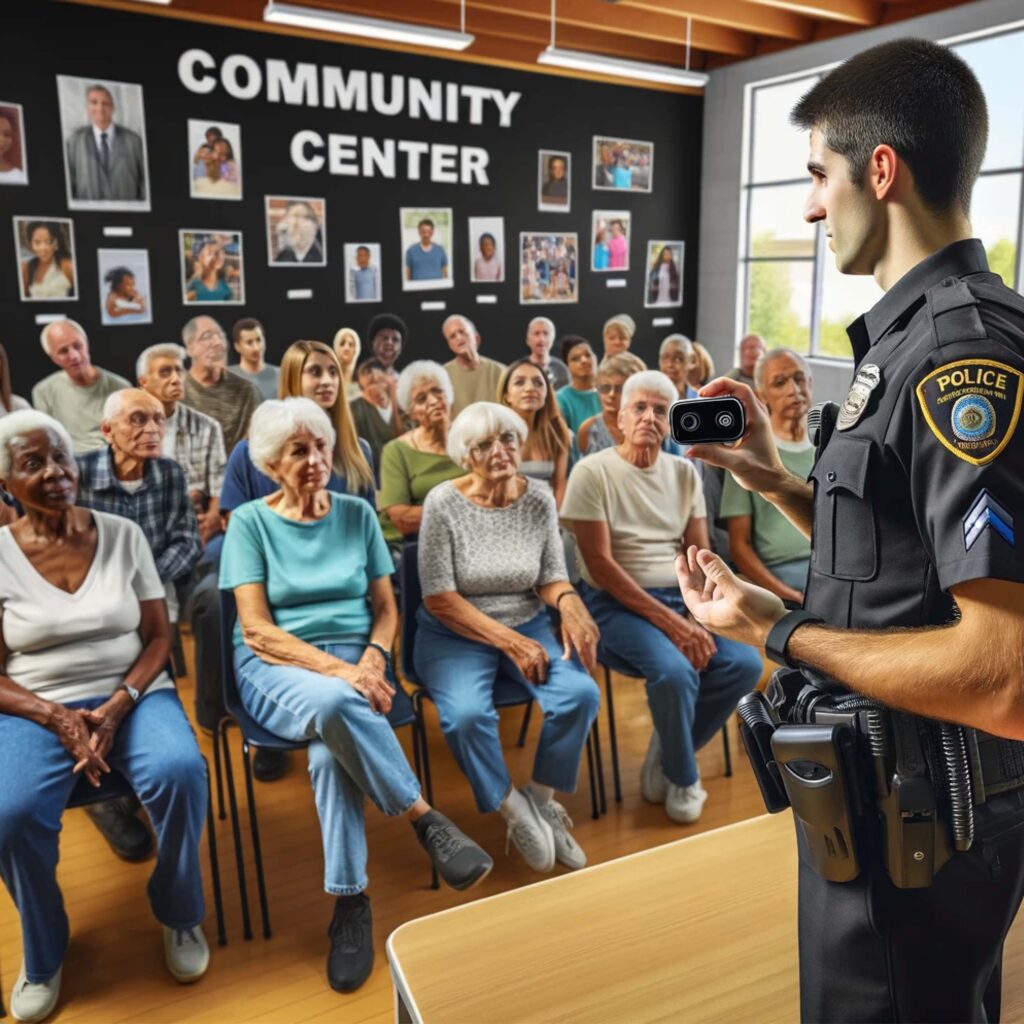In the wake of high-profile cases of police misconduct, including the murder of George Floyd by Minneapolis police officers in 2020, questions have arisen about whether body-worn cameras could help prevent excessive force by law enforcement. According to Dr. Jennifer Matthews, an expert who has trained over a thousand Chicago-area officers on body camera programs, the answer is yes.
“I definitely think that it could have been prevented, it would have been less likely if they were wearing body cameras,” Dr. Matthews said of Floyd’s murder. “It was good that the a witness recorded the incident with their cell phone because the story was able to be told in a different light because had they not recorded, then it would just been told from the officers’ perspective. And maybe the truth would have never come to light.”

During an interview with Robert Riggs on the True Crime Reporter® Podcast, Dr. Matthews discussed how police body cameras reassure citizens that they are being treated fairly and can rebut false claims of abusive treatment by officers.
A Tool for Transparency and Accountability
Body-worn cameras, which attach to an officer’s uniform to record interactions with the public, have become an important tool for enhancing transparency, accountability, and public trust in law enforcement. Dr. Matthews’ PhD dissertation at Walden University focused on citizens’ experiences during police encounters involving the cameras. She found that the mere presence of a camera puts citizens more at ease and makes them more likely to comply with officers.
“The theory that my dissertation was based on was self-awareness, deterrence, and then procedural justice,” Dr. Matthews explained. “Self-awareness comes in when the citizen knows that they are being watched by the camera. And of course, the officer knows that they are being watched on body camera because why they’re wearing the body camera.”
“Then the deterrence theory – nobody wants to be caught. So you’re going to do what you know is right because you don’t want to be caught…there are consequences if you are caught doing the wrong thing,” she said. “And then procedural justice is how the officer is treating the citizen that they are coming in counter with on body-worn camera.”
Setting a Positive Tone
Matthews believes officers should always inform citizens when they are being recorded, as it can immediately set a more positive tone for the interaction.
“I think if they reveal that they are recording, it will help initially, immediately, because now that citizen knows what to expect,” she said. “They know that no matter what, whether this officer is treating them by the color of the law, whether this officer is treating them harshly, that there is an impartial witness on the scene right now. And that they can go back and refer to that footage.”
Unfortunately, many officers fail to proactively share this information because their department policies don’t require it, Matthews said. She advises all the officers she trains to narrate their actions and inform citizens they are being recorded.
Matthews said she has observed a “crisis in lack of respect” in interactions between police and the public in recent years. She attributes this partially to citizens forming negative perceptions of law enforcement from social media without context.
A Crisis of Respect
“The citizens are saying their opinions about police officers and police, law enforcement in general, are coming from social media. They’re coming from watching the news. They’re coming from friends are coming from family,” she said. “So unless you have a friend or family member or somebody that you know, by association, is a law enforcement officer, you’re going to take what you see, what you hear as the truth.”
Part of her work involves training citizens, including high school and college students, on how to interact respectfully with law enforcement. She emphasizes that escalating or failing to comply, even over a minor issue like a traffic stop for a broken tail light, will only make the situation worse.
Dispelling Myths
Matthews also works to dispel common myths about body cameras, such as the idea that officers can alter or delete the footage after an incident. While some elements like faces or private information can be blurred before release, the original video is always preserved intact, she said.
“People don’t realize that,” Matthews said. “They think, oh my gosh, this person has manipulated the video they changed, it is gone forever. It does not work like that. Original remains intact.”
Gaining Officer Buy-In
When beginning her training with officers, Matthews said she focuses on helping them understand how the cameras will protect them more than harm them. After about six months of using the cameras, most come to agree.
“When it comes to officers, citizens’ complaints, when it comes to officer incidents at all, anything that can come back and bite them, and they see that that camera was there, and they can go back to refer to it and say, no, it didn’t happen this way. It happened that way,” she said. “And then they have that camera footage to back them up. They are in agreement with me that this will help them more than no harm them.”
The Future of Body Cameras
While the costs of body camera programs can be substantial, especially for smaller departments, objective documentation is becoming increasingly essential. As evidence of their growing importance, Matthews pointed to the expansion of body cameras to other fields like emergency medical services, firefighters, corrections officers, sports arenas, and hospitals.
“The good part about it is that they can be used in other industries to increase transparency and accountability in these other industries who need them,” she said. “Because there are, you know, allegations and other industries, not just in law enforcement.”
“Given that body-worn cameras started with police to now evolving to commercial business is a huge change,” Matthews added. “And it’s a change for the better.”
FOLLOW the True Crime Reporter® Podcast
SIGN UP FOR my True Crime Newsletter
THANK YOU FOR THE FIVE-STAR REVIEWS ON APPLE Please leave one – it really helps.
TELL ME about a STORY OR SUBJECT that you want to hear more about
